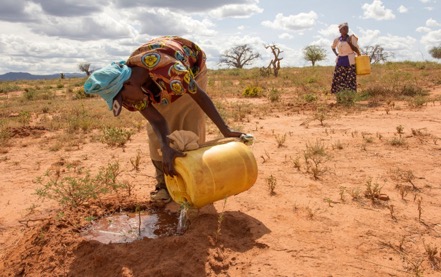Integrate climate change measures into policies and planning for a sustainable future
To effectively address these challenges, it is imperative that we integrate climate change measures into policies and planning at all levels of government and within organizations.

Patience Katusiime
Climate change is one of the most pressing global challenges of our time, with far-reaching consequences for the environment, economies, and societies worldwide.
Rising temperatures, extreme weather events, sea-level rise, and other climate-related phenomena are already impacting communities across the globe.
To effectively address these challenges, it is imperative that we integrate climate change measures into policies and planning at all levels of government and within organizations.
The climate crisis continues unabated as the global community shies away from the full commitment required for its reversal. 2010 – 2019 was the warmest decade ever recorded, bringing with it massive wildfires, hurricanes, droughts, floods and other climate disasters across continents.
Climate change is disrupting national economies and affecting lives and livelihoods, especially for the most vulnerable.
Between 2010 and 2020, highly vulnerable regions, home to approximately 3.3–3.6 billion people, experienced 15 times higher human mortality rates from floods, droughts and storms compared to regions with very low vulnerability. To address climate change, we have to vastly raise our ambition at all levels. Much is happening around the world – investments in renewable energy have soared. But more needs to be done.
The world must transform its energy, industry, transport, food, agriculture and forestry systems to ensure that we can limit global temperature rise to well below 2°C, maybe even 1.5°C.
In December 2015, the world took a significant first step by adopting the Paris Agreement, in which all countries committed to take action to address climate change.
However, more actions are critically needed in order to meet the targets. Businesses and investors need to ensure emissions are lowered, not just because it is the right thing to do, but because it makes economic and business sense as well.
If left unchecked, climate change will cause average global temperatures to increase beyond 3°C, and will adversely affect every ecosystem. Already, we are seeing how climate change can exacerbate storms and disasters, and threats such as food and water scarcity, which can lead to conflict.
The Intergovernmental Panel on Climate Change (IPCC) has repeatedly warned about the dire consequences of failing to limit global warming to well below 2 degrees Celsius above pre-industrial levels.
The impacts of climate change are not confined to distant future scenarios; they are happening now.
To mitigate these changes and adapt to the new realities of a warming world, it is crucial that we act swiftly and decisively. This requires integrating climate change measures into every aspect of policymaking and planning.
Integration of climate change measures allows for a dual approach encompassing both mitigation and adaptation. Mitigation involves reducing greenhouse gas emissions to slow down climate change, while adaptation involves preparing for and minimizing the impacts that are already underway. Combining these strategies ensures a comprehensive response.
Climate change measures promote long-term sustainability by considering the needs of future generations. Policymakers and planners must think beyond short-term goals and incorporate climate resilience into infrastructure, land use, and resource management decisions.
The integration of climate change measures can boost economic resilience. Investments in renewable energy, energy efficiency, and green technologies can create jobs, reduce energy costs, and enhance a nation’s competitiveness in the global marketplace.
Climate change measures can reduce the vulnerability of communities to extreme weather events and natural disasters. By planning for resilience and implementing early warning systems, societies can save lives and reduce the economic costs of disasters.
Review existing policies and ensure that climate change objectives are aligned with other policy goals such as economic development, social equity, and environmental protection. Training government officials, planners, and decision-makers in the principles of climate change mitigation and adaptation will ensure that climate considerations are integrated into their work.
Addressing climate change is not an option; it is an imperative. Integrating climate change measures into policies and planning is not only essential for the well-being of our planet but also for the prosperity and security of current and future generations.
By taking decisive action, aligning policies, engaging stakeholders, and investing in sustainable solutions, we can pave the way for a resilient, low-carbon, and sustainable future. It’s time to recognize that tackling climate change is not a burden but an opportunity to build a better world for all.
Patience Katusiime is the Programs Assistant at Environment Governance Institute
Pkatusiime1@gmail.com







